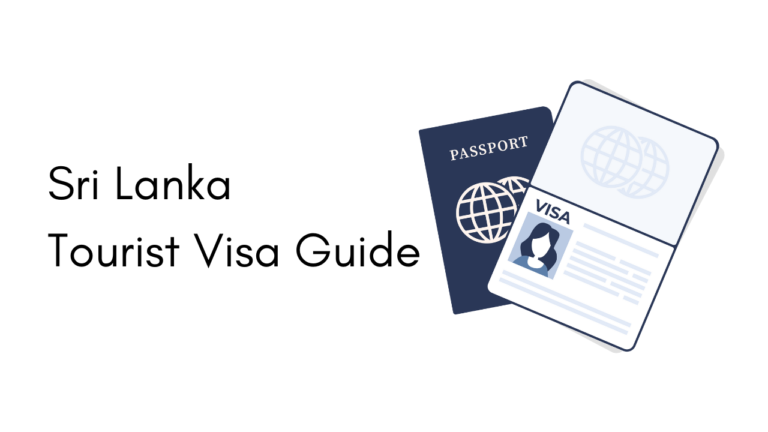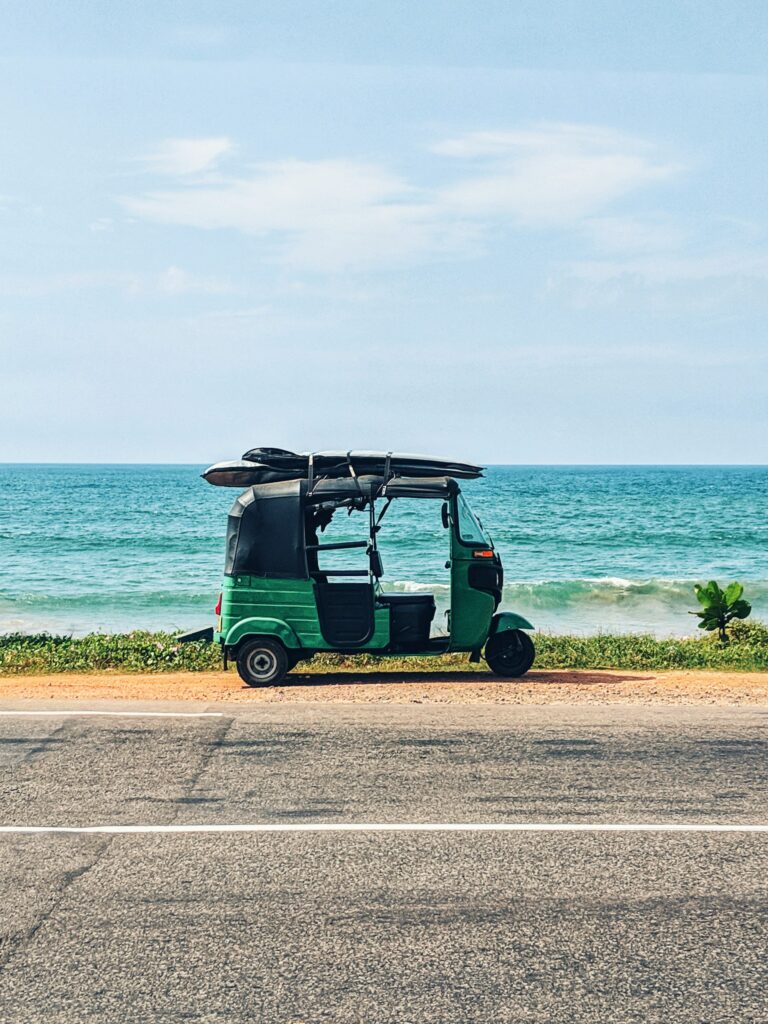
General Safety Tips
Staying informed is crucial when traveling in Sri Lanka. As a traveler, it is imperative to regularly check local news and weather forecasts to stay updated on any potential hazards or disruptions. This proactive approach can help you avoid areas affected by natural disasters, political unrest, or other unforeseen events that might pose risks during your Sri Lanka tour.
For added security, consider registering with your country’s embassy upon arrival. This step can offer additional assistance and support in emergencies, providing you with a reliable point of contact. Many embassies offer services such as travel advisories, emergency response, and even assistance in case of lost documents or health issues. Ensuring that the embassy is aware of your presence in Sri Lanka can facilitate quicker and more efficient aid if needed.
It is also wise to save important emergency contacts in your phone and have them written down in case you lose your device. Key contacts should include the local police, reachable at 119, ambulance services, and your country’s embassy. Having these numbers readily available can be a lifesaver in emergency situations, allowing you to act swiftly and effectively.
Furthermore, familiarize yourself with local customs and regulations to avoid any inadvertent violations that could lead to legal issues. Respecting local traditions and laws not only enhances your travel experience but also minimizes the risk of confrontations or misunderstandings with local authorities. By being well-prepared and aware of your surroundings, you can ensure a safer and more enjoyable journey while exploring the diverse and vibrant landscapes of Sri Lanka.
Health Precautions
When planning your Sri Lanka tour, it is crucial to prioritize your health to ensure a safe and enjoyable experience. Start by verifying that all your routine vaccinations are current. Consult with your healthcare provider about any additional vaccines recommended for traveling in Sri Lanka; these may include vaccinations for Hepatitis A, Typhoid, and Rabies, depending on your travel itinerary and activities.
One of the primary health concerns while traveling in Sri Lanka is waterborne diseases. To mitigate this risk, always drink bottled or purified water. Avoid consuming tap water, including when brushing your teeth, and be mindful of ice in drinks, as it may be made from tap water. Reputable brands of bottled water are widely available throughout the country, making it easy to stay hydrated safely.
Food hygiene is another critical aspect to consider. While Sri Lanka offers an array of delicious culinary delights, it is essential to be cautious about where and what you eat. Opt for dining in reputable restaurants, which are more likely to adhere to higher standards of food safety and hygiene. Be wary of street food, tempting as it may be, unless you can be certain it is freshly cooked and served hot. This precaution significantly reduces the risk of foodborne illnesses, which can quickly dampen the excitement of your Sri Lanka tourism experience.
By taking these health precautions seriously, you can focus on the beauty and cultural richness that traveling in Sri Lanka has to offer. Ensuring your vaccinations are up-to-date, drinking safe water, and choosing food wisely are fundamental steps to safeguard your health during your Sri Lanka tour. These measures will help you avoid preventable illnesses and enjoy a worry-free journey through this enchanting island nation.
Transportation Safety
Traveling in Sri Lanka offers an enriching experience, but it is crucial to prioritize safety, particularly when it comes to transportation. Sri Lanka’s road conditions can be challenging, especially in rural areas where roads may be narrow and poorly maintained. Hiring experienced drivers who are familiar with local traffic patterns and road conditions can significantly enhance your safety. These drivers are adept at navigating the unpredictable nature of Sri Lankan roads, ensuring a smoother and safer journey.
Public transportation in Sri Lanka, such as buses and trains, is a popular and economical option for many travelers. However, it is important to exercise caution when using these services. Public transport can often be overcrowded, and regulations may not always be strictly enforced. Overcrowding not only poses a risk to personal safety but can also increase the likelihood of petty theft. To mitigate these risks, always keep your belongings secure and avoid traveling during peak hours when buses and trains are most crowded.
For a more reliable and secure mode of transport, consider using trusted ride-hailing apps such as PickMe or Uber. These services offer a convenient and safer alternative to public transportation. With features like driver tracking, real-time updates, and cashless payments, these apps provide an added layer of security and peace of mind. Additionally, ride-hailing services often employ stringent driver vetting processes, ensuring that you are in safe hands.
Whether you are navigating the bustling streets of Colombo or exploring the scenic routes of the countryside, being mindful of transportation safety is essential. By opting for experienced drivers, exercising caution with public transport, and utilizing reliable ride-hailing apps, you can ensure a safer and more enjoyable experience while traveling in Sri Lanka.
Sri Lanka, with its pristine beaches and rich wildlife, offers a captivating experience for travelers. However, maintaining safety while enjoying these attractions is paramount. When it comes to beach safety, it is essential to swim only in designated areas, which are monitored by lifeguards. These areas are marked for a reason, often due to the presence of strong undercurrents or dangerous marine life such as jellyfish. Always check local warnings and signs before entering the water, as conditions can change rapidly.
Strong currents are a particular concern when swimming in the ocean. Even experienced swimmers can be caught off guard by rip currents, which can pull you out to sea. If you find yourself caught in a rip current, remain calm and swim parallel to the shore until you are out of the current. Then, swim back to the beach at an angle. Wearing a life jacket can also provide an added layer of safety, especially for children and less confident swimmers.
In addition to beach safety, interacting with wildlife requires careful consideration. Sri Lanka is renowned for its elephants and monkeys, often encountered in national parks or rural areas. While these animals can be fascinating to observe, it is crucial to maintain a respectful distance. Elephants, in particular, can be unpredictable and may charge if they feel threatened. Always follow the guidelines provided by park authorities and avoid feeding or attempting to touch the animals.
Monkeys, although smaller, can also be a concern, particularly in tourist areas where they may have become accustomed to human presence. They can be bold and may attempt to snatch food or belongings. Keep a safe distance and secure your items to avoid unwanted encounters. By adhering to these safety tips, you can enjoy the natural beauty and wildlife of Sri Lanka while ensuring a safe and memorable experience.
Cultural Sensitivity and Respect
Sri Lanka is a country steeped in a rich cultural heritage, which is an integral part of the experience for travelers. When planning your Sri Lanka tour, it’s essential to be mindful of local customs and traditions to ensure a respectful and enjoyable visit. One of the most significant aspects of cultural sensitivity involves dressing modestly. This is particularly important when visiting religious sites, such as temples and shrines. It is advisable to wear clothing that covers your shoulders and knees. In some places, you may be required to remove shoes and hats before entering, so being prepared for this will help you avoid any inadvertent disrespect.
Behavioral norms in Sri Lanka also necessitate a degree of discretion. Public displays of affection, such as kissing or hugging, can be frowned upon, especially in rural areas and around religious sites. Demonstrating an understanding of and adapting to these norms not only shows respect but also fosters positive interactions with locals. When traveling in Sri Lanka, it is helpful to greet people with a smile and a slight bow, which is a traditional and respectful gesture.
Another critical aspect of cultural respect involves understanding local etiquette during social interactions. For instance, it is customary to use the right hand for eating and giving or receiving items, as the left hand is considered impolite. Additionally, avoid pointing your feet at people or religious artifacts, as this is deemed disrespectful. Engaging with locals in a courteous and considerate manner will undoubtedly enhance your travel experience and leave a lasting positive impression.
By being conscious of these cultural nuances while traveling in Sri Lanka, you not only show respect for the local traditions but also enrich your own experience. Embracing these practices allows for deeper connections with the culture and people, making your Sri Lanka tourism adventure even more memorable.
Personal Belongings
When embarking on a Sri Lanka tour, safeguarding your personal belongings is paramount to ensure a hassle-free journey. An effective way to secure your valuables is by utilizing the safes provided in most hotels. These safes offer a reliable place to store important items such as passports, extra cash, and electronic devices. By keeping these items secure, you minimize the risk of losing essential documents and belongings during your travels.
While exploring the vibrant streets and bustling markets, it is crucial to remain vigilant, especially in crowded areas. Petty theft, including pickpocketing, can occur in such places. Simple precautions like keeping your bags zipped and close to your body, avoiding the display of expensive jewelry or large sums of money, and being aware of your surroundings can significantly reduce the chances of falling victim to theft. Additionally, using anti-theft backpacks and money belts can further enhance the security of your belongings.
Comprehensive travel insurance is another indispensable aspect of traveling in Sri Lanka. This type of insurance covers various unforeseen incidents such as health emergencies, accidents, and theft. Ensuring you have a robust travel insurance plan provides peace of mind, knowing that you are protected against potential financial losses and medical expenses. It is advisable to choose a travel insurance policy that offers extensive coverage tailored to your specific needs and activities planned during your trip.
In conclusion, while Sri Lanka is generally a safe destination, taking proactive steps to secure your personal belongings and having comprehensive travel insurance can greatly enhance your travel experience. By exercising caution and making informed decisions, you can enjoy the scenic beauty and rich culture of Sri Lanka without unnecessary concerns.
Traveling in Sri Lanka offers an array of breathtaking experiences, but it is essential to be aware of the potential natural disasters that could occur. The country is susceptible to several natural calamities, including tsunamis and flooding. Familiarizing yourself with these risks and understanding the appropriate safety protocols can significantly enhance your safety during your tour.
First and foremost, it is crucial to stay informed about the potential for natural disasters while in Sri Lanka. Tsunamis, for instance, can occur due to underwater seismic activity. The Boxing Day Tsunami in 2004 is a poignant reminder of the devastation such events can cause. To mitigate risks, always heed local warnings and advisories. Coastal regions typically have tsunami warning systems in place, and locals are generally well-versed in evacuation protocols. Familiarize yourself with these procedures and know the designated evacuation routes in your vicinity.
Flooding is another natural hazard to be mindful of, particularly during the monsoon seasons. The southwest monsoon occurs from May to September, while the northeast monsoon spans from December to February. Heavy rainfall during these periods can lead to flash floods and landslides. To stay safe, monitor weather forecasts and listen to local authorities for updates. Avoid traveling through flood-prone areas and refrain from crossing swollen rivers or streams.
Additionally, consider downloading mobile applications that provide real-time updates on weather conditions and natural disaster alerts. Engaging with local communities and seeking advice from your accommodation providers can also offer valuable insights into current safety conditions.
By staying vigilant and informed, you can enjoy your Sri Lanka tour with greater peace of mind. Understanding the risks associated with natural disasters and knowing the necessary evacuation procedures are key components of a safe and enjoyable travel experience in this beautiful island nation.
Emergency Preparedness
Traveling in Sri Lanka offers an enriching experience, but being prepared for emergencies is crucial to ensure a safe journey. Firstly, it is essential to know the locations of nearby hospitals and clinics in the areas you plan to visit. Familiarize yourself with the types of medical facilities available and their proximity to your accommodation. This information can be particularly valuable in the case of sudden illness or injury.
Equipping yourself with a basic first-aid kit is another fundamental aspect of emergency preparedness. Include essentials such as bandages, antiseptics, pain relievers, and any personal medications you may require. Having these items on hand can help manage minor injuries and ailments until professional medical help is available.
Understanding key phrases in the local language can significantly enhance your ability to navigate emergencies. Common phrases such as “I need help,” “call a doctor,” or “where is the nearest hospital?” can be lifesavers. Consider carrying a small phrasebook or downloading a language app to assist with communication.
Reliable communication is vital during an emergency. Ensure that your mobile phone is equipped with a local SIM card or that your international roaming is enabled. A local SIM card can offer more reliable and cost-effective communication options. Additionally, storing important contact numbers, such as local emergency services, your country’s embassy, and your accommodation, in your phone can expedite response times in critical situations.
By taking these steps, you can enhance your safety and peace of mind while enjoying your Sri Lanka tour. Being well-prepared allows you to focus on the beauty and culture of this vibrant destination without undue worry.



